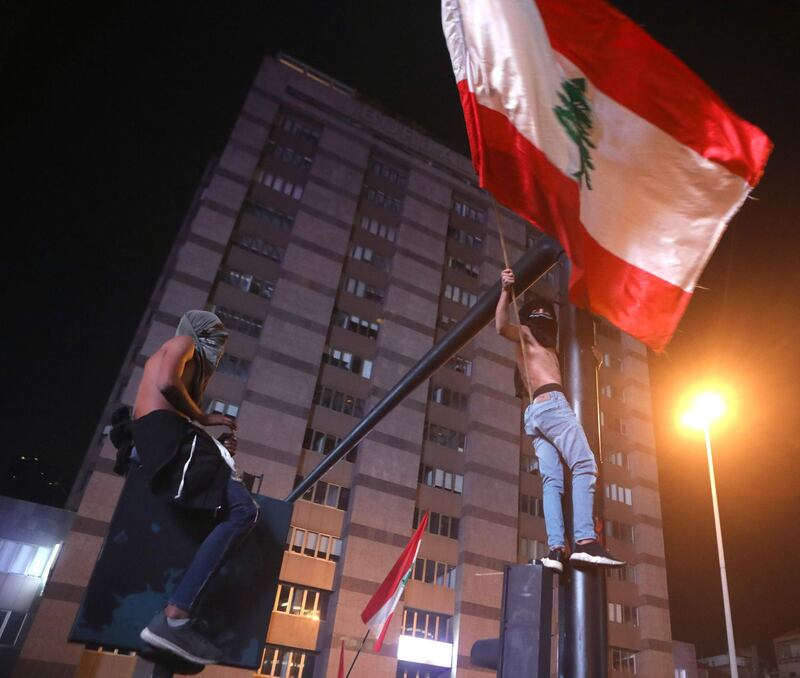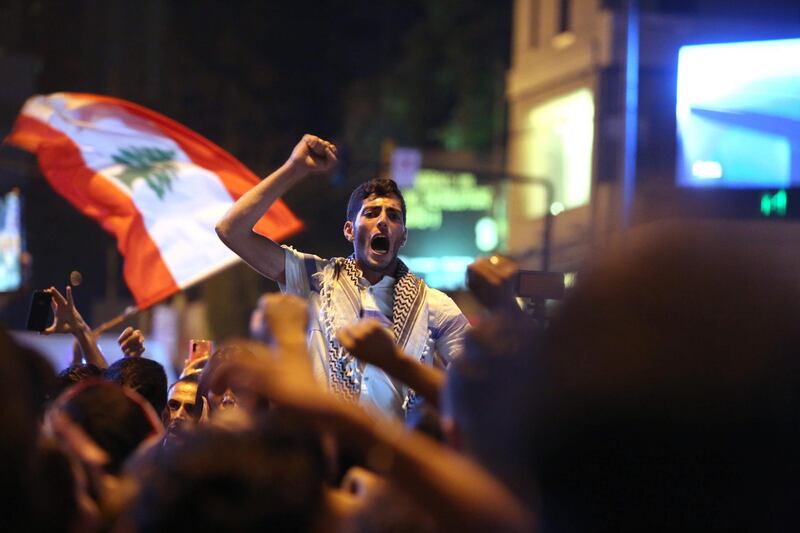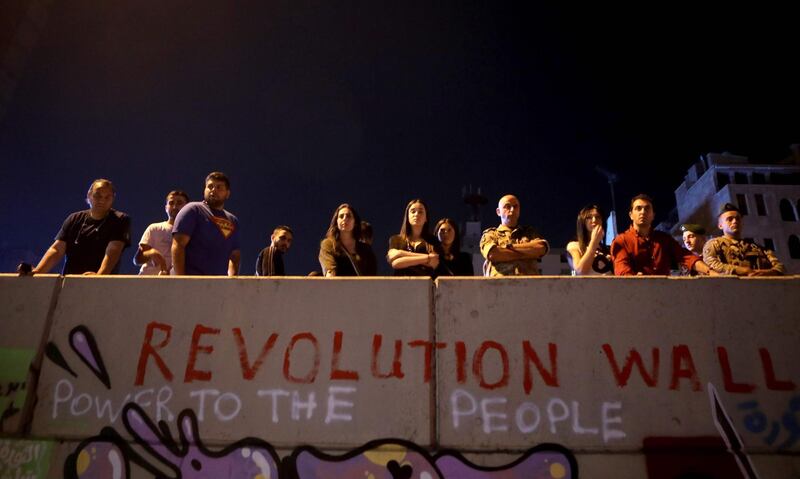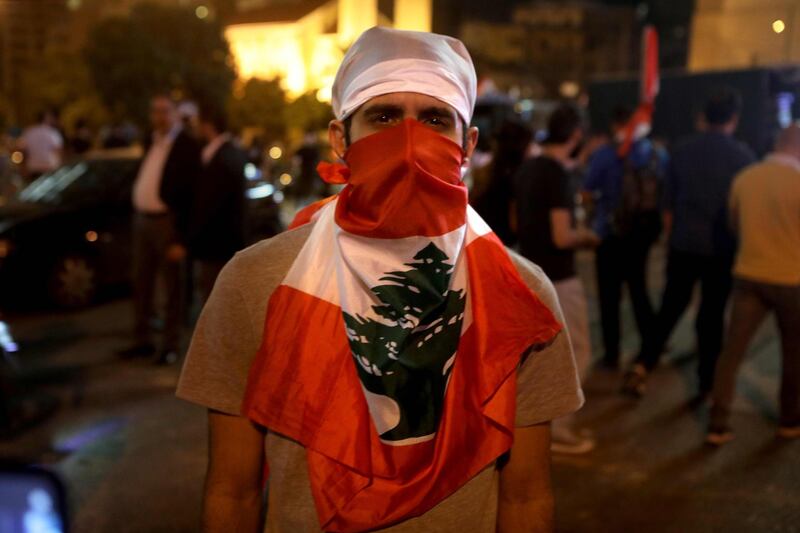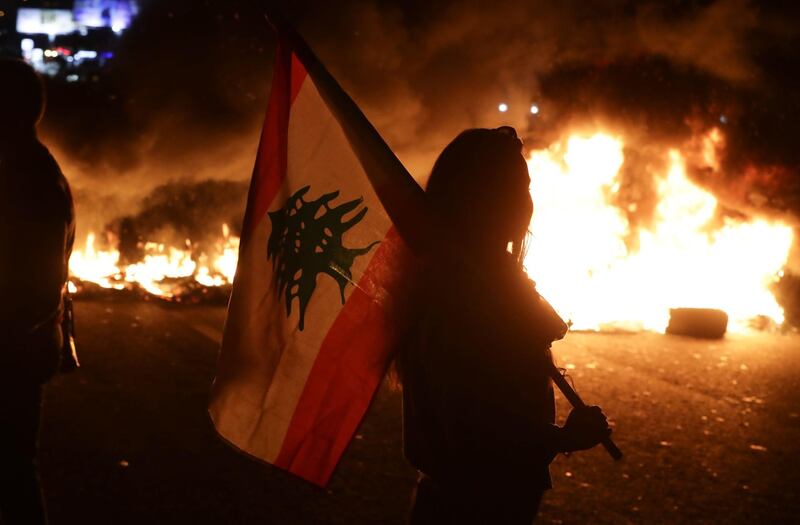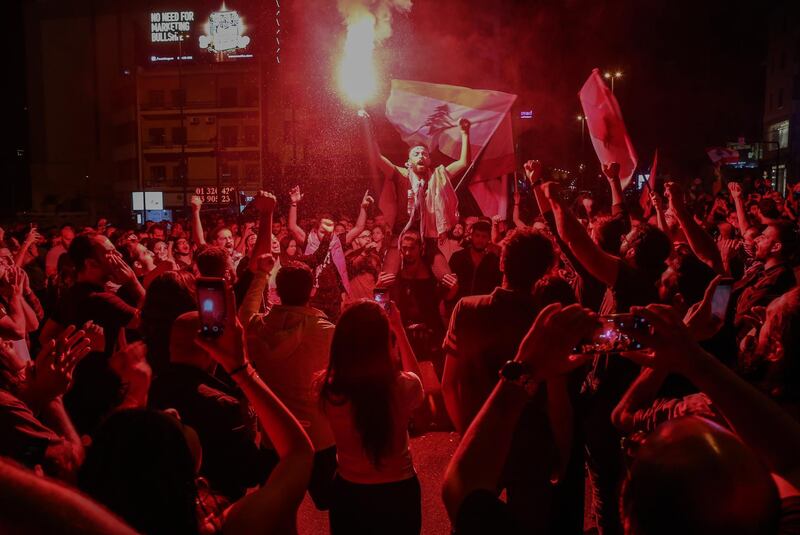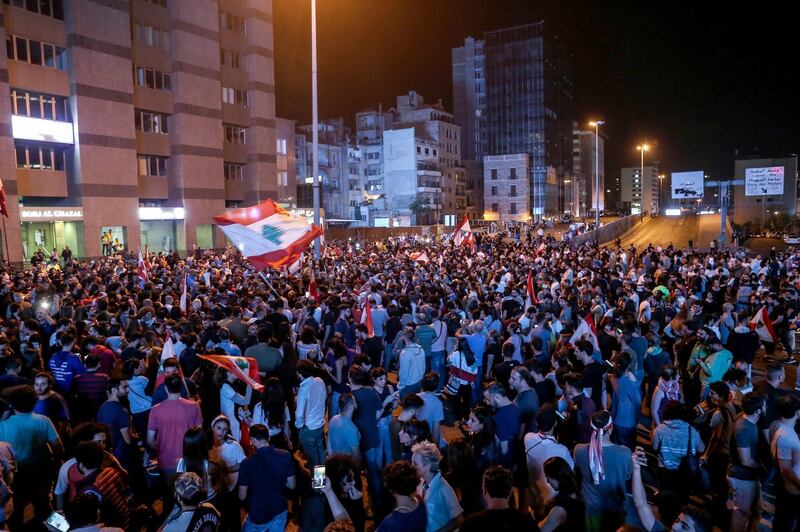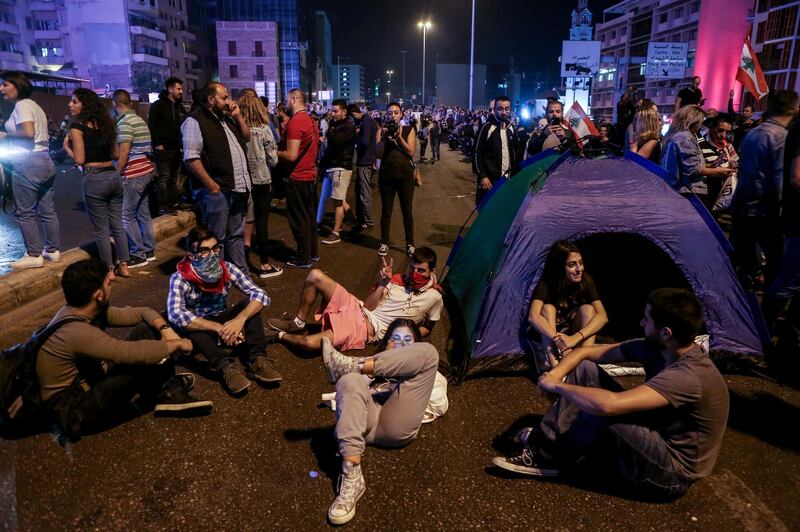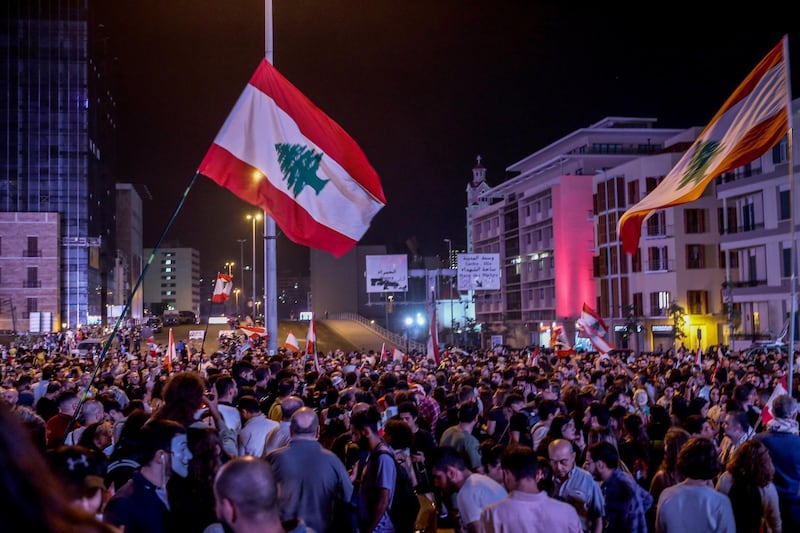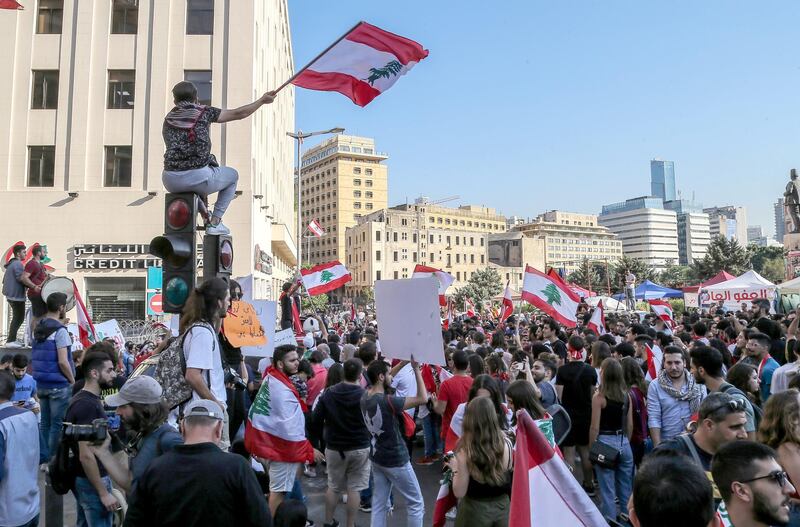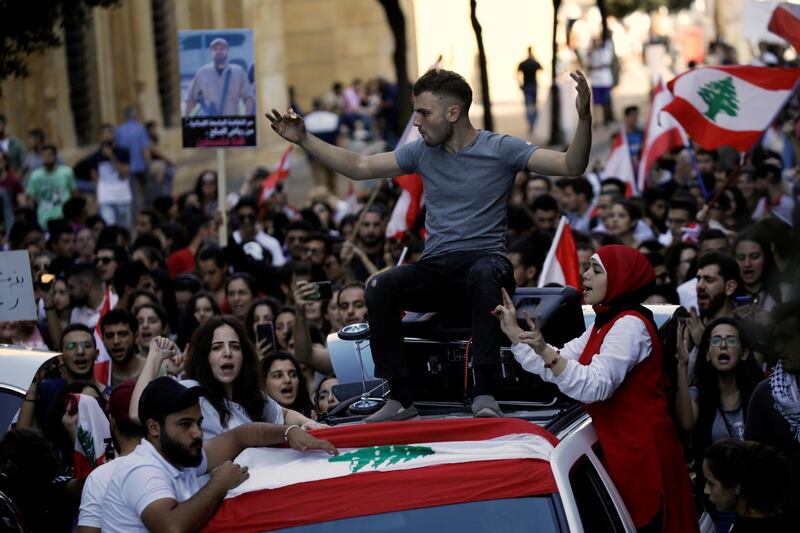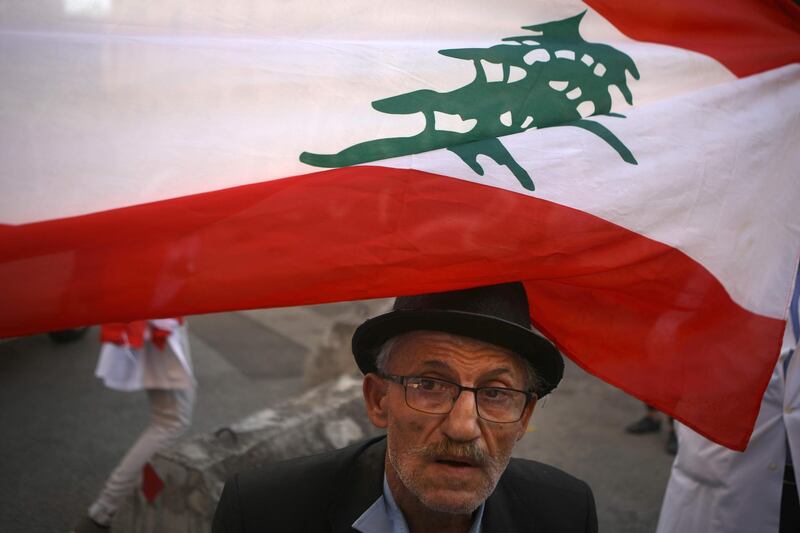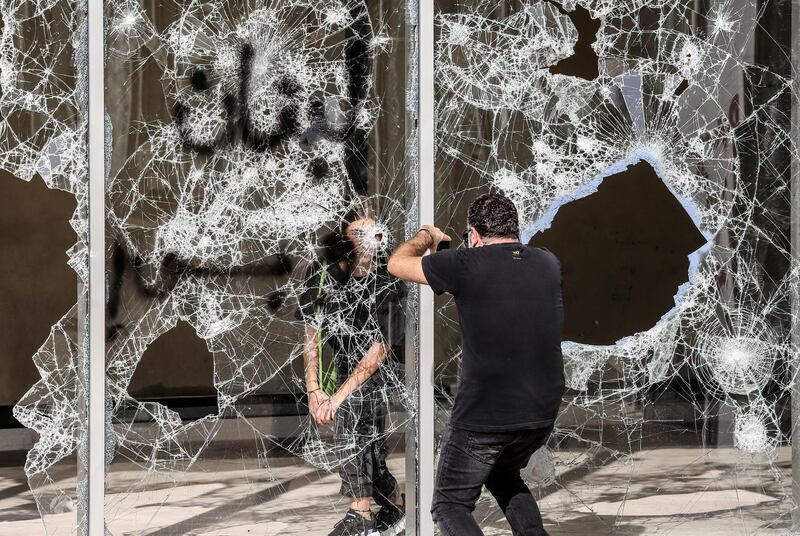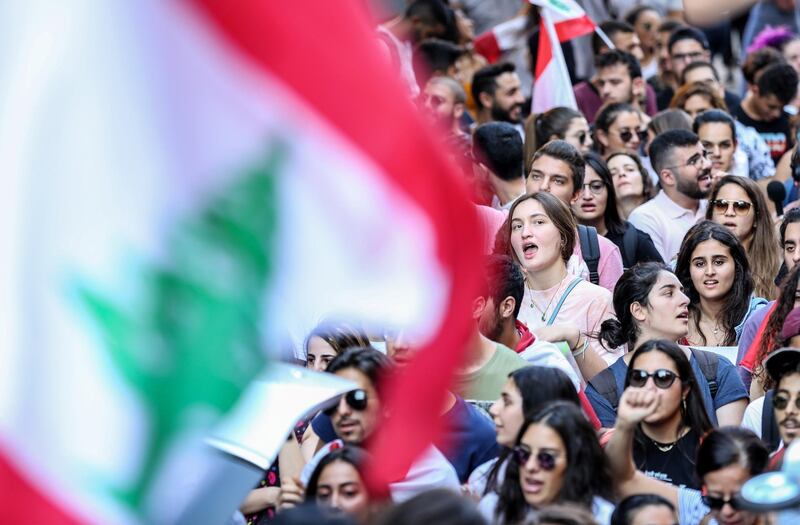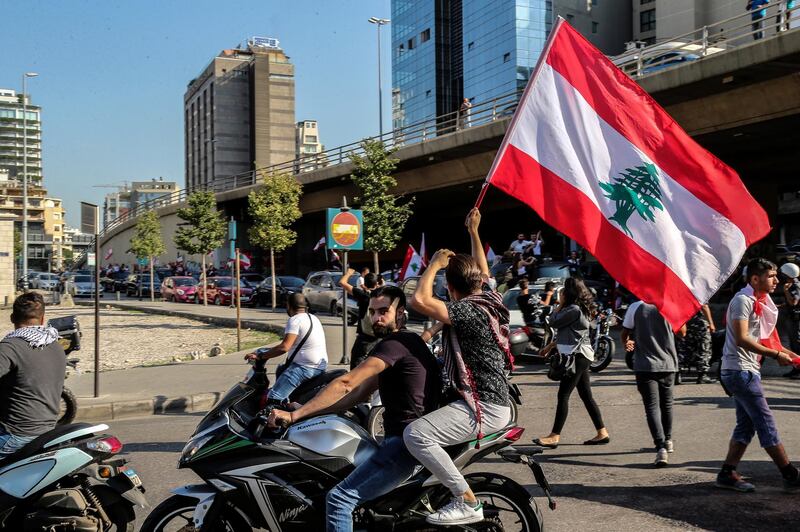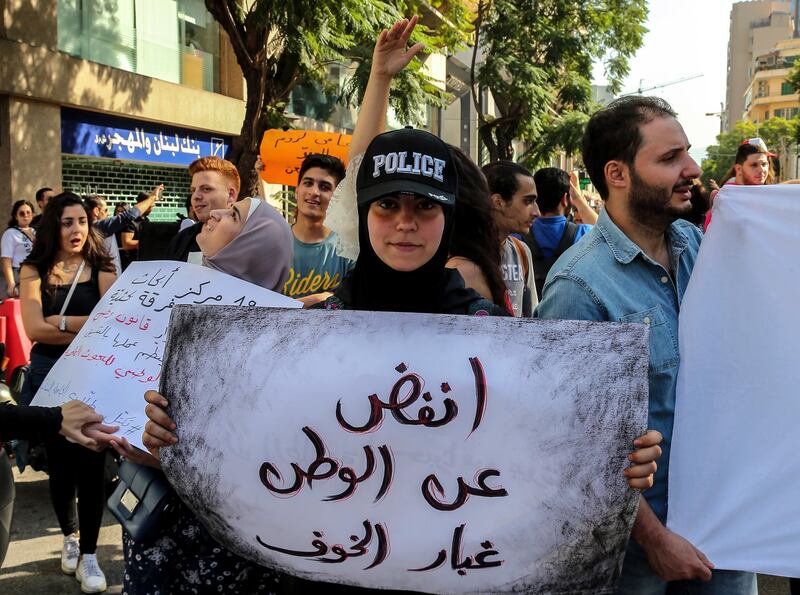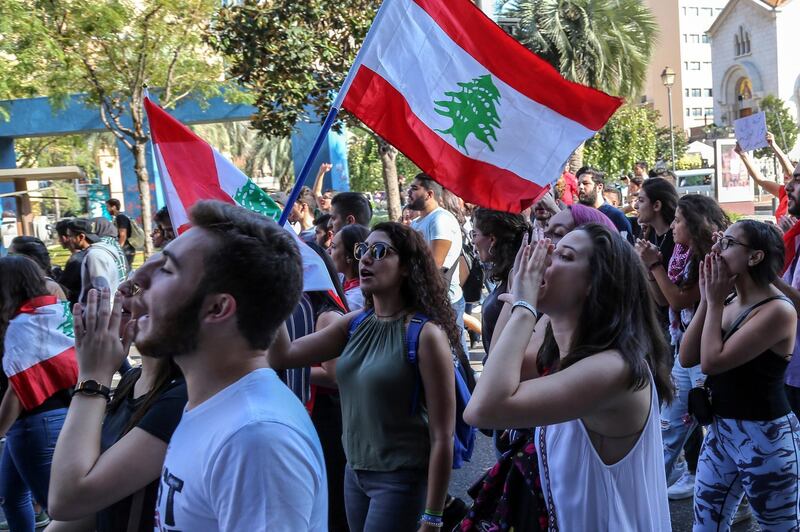The Lebanese army has arrested a soldier who shot and killed a protester as he tried to clear the road of demonstrators on Tuesday evening.
Alaa Abou Fakher, a member of the Choueifat Municipality and a supporter of the Progressive Socialist Party, died shortly after being hit with a bullet on the main highway in Khaldeh just south of Beirut. It is unclear if the soldier intentionally fired at Fakher or if he was hit by mistake.
The exact details of the incident remain unclear but images and videos shared on social media show Fakher laying in a pool of blood next to his wife and son.
The army released a short statement after the incident saying that the military had tried to clear protesters blocking the road leading them to open fire and wounding one person. The soldier, the army said, has been arrested while investigations are carried out.
The death is the first incident of a protester being killed by the military. While the demonstrations have been largely peaceful, barring a few scuffles with the security forces and other political supporters, four people have so far died.
On the first night of the protests, two Syrian workers choked to death from a fire that spread to a building they were in near major protests in the capital.
The country has been engulfed by nationwide protests against the entire political class since October 17.
Progressive Socialist Party leader Walid Jumblatt, told an angry crowd outside the hospital where the man died of his wounds to calm down, saying “no one will protect us but the state”.
He said that he had spoken with the army chief and was told about the investigation.
Protesters poured into the streets on Tuesday night closing roads around Lebanon after President Michel Aoun said there could be further delays before a new government is formed.
A group of protesters trying to block the entrance to Beirut’s Justice Palace clashed with lawyers earlier on Tuesday.
The protesters hoped to maintain pressure on the country’s judicial system to investigate corrupt politicians as part of a wider protest against inequality and poor economic conditions.
Sara, 23, said a lawyer attacked her as she was standing with three other people in front of the car park of the Beirut Bar Association building, which is connected to the Justice Palace.
“We were not aggressive and responded respectfully to lawyers who talked to us,” Sara said.
“But the lawyer started insulting us and pushing me in a very aggressive way until the police removed us.”
She spoke from outside the main entrance of the Justice Palace as a small protest of several dozen people continued on Tuesday afternoon.
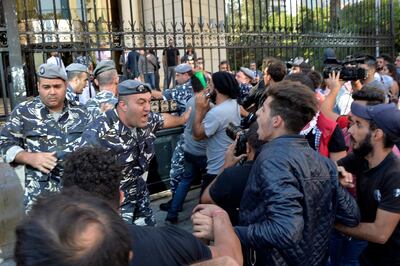
“This is too much," she said. "He is a lawyer, he cannot act like this with people."
In a video of the incident, the lawyer shouts at Sara that the building is private property and that she cannot block it, before trying to stop the incident being filmed.
“Go back to your university,” the lawyer shouts.
A colleague who tried to defend the lawyer was struck in the face by protesters in a scuffle that cracked the glass of the revolving door to the building, said Ayman Raad, a lawyer who is part of a committee that supports protesters.
Both sides can sue each other over the incident, Mr Raad said.
Another protester, Rabab Nasser, 24, who was also blocking an entrance to the Justice Palace, said that a prominent judge insulted her, threatened to beat her and forced her out of the way with his car.
Protesters said a third woman suffered a scalp injury during the scuffles.
By late morning, the entrance to the Justice Palace had been reopened after lawyers argued that the protesters were blocking urgent legal procedures.
Hearings were adjourned because of the protest, the state-run National News Agency reported.
“We want judges to fight corruption,” said protester Sara Baghdadi, 32. “We know some follow political parties but there are some good judges who have good intentions. We’re here to push them to fight.”
Rana Abi Abdallah, 31, said: “We do not have a fair justice system. A lot of judges are bribed. This whole movement is to fight corruption.”
The demonstrations in Lebanon, which brought hundreds of thousands of people to the streets during the first week in mid-October, have shifted from mass rallies and roadblocks to smaller gatherings at public institutions considered to be corrupt.
The protests pushed Prime Minister Saad Hariri to resign on October 29.
The country is now in a political void that has compounded an existing financial crisis as Mr Aoun has yet to announce a date for binding parliamentary consultations.
He was expected to do so in a television interview on Tuesday night.
Corruption is one of the main drivers of the protests, which was triggered by a suggested tax increase.
Lebanon was ranked 138th out of 180 countries in Transparency International’s latest Corruption Perception Index.
Several political parties, including Hezbollah and the president’s Free Patriotic Movement, have promised to fight corruption and said cases against prominent officials and politicians were launched in the few past weeks.
But protesters are not convinced.
“We want to see action,” Ms Abi Abdallah said. “We are fed up.”
